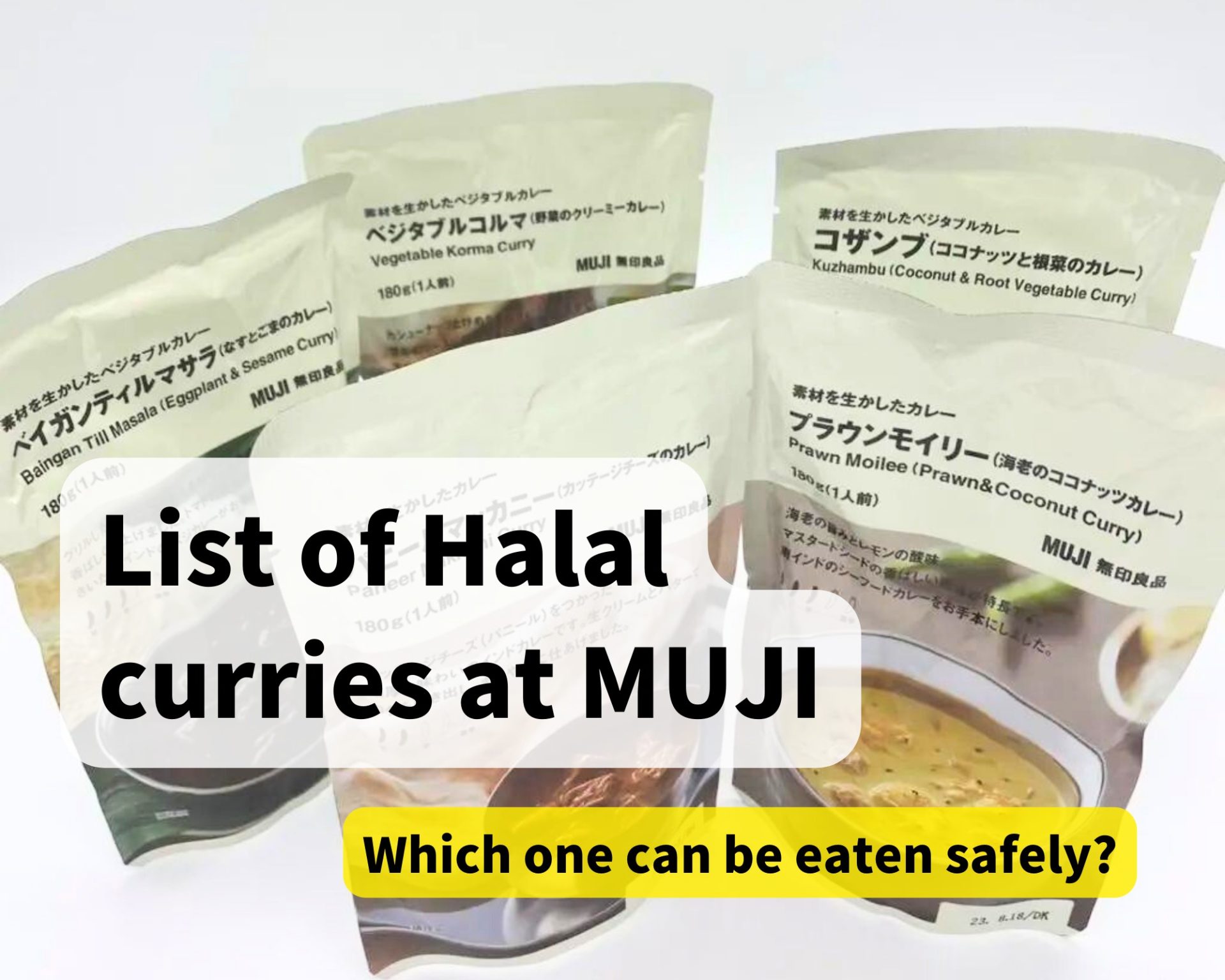MUJI curry is booming.
Because there are some branches available in overseas, you may already know the name of this shop. Mujirushi Ryohin (無印良品), or simply as MUJI, is a popular shop among people in Middle East and Asian countries.
Today, we are going to see their ready-to-eat curries. They are now very popular and chosen by many Japanese, which is the reason why MUJI has created as many as 53 international curries to meet the demand.
The great thing is that there are some curries that can be Muslim-friendly!
Unfortunately, we have excluded curries which use meat, as it is not halal obviously. Curries we are going to show you in this article are either Vegan or Seafood. They are not Halal certified and manufactured in the factory that handles haram meat, but at least there is no haram ingredients included.
List of the curries that can be Halal or Muslim-friendly.
The list of the curries that can be Muslim-friendly are as follows:
- Paneer Makhani (パニールマッカーニ)
- Aloo Matar (アルマタール)
- Prawn Moiley (プラウンモイリー)
- Kuzhambu(コザンブ)
- Vegetable Korma(ベジタブルコルマ)
- Baingan Till Masara (ベイガンティルマサラ)
Let’s see each curry in detail. Click the link to jump to your favorite curry.
Paneer Makhani (パニールマッカーニ)
The curry is originally from New Delhi in India, with the ingredients of butter, which in their language is makhan, cashew and tomatoes. Most importantly, the biggest feature is they are using cottage cheese.
It does not use any meat products. However, the taste is really thick and rich, as they use cream and butter. They have a lot of cottage cheese inside, with the sourness of the tomatoes well match the taste.
Ingredients
Whey, Cheese, Cream, Cashew nuts paste, Honey, Plant oil, Tomato paste, Flour, Coriander, Salt, Tomato powder, Garlic, Ginger, Curry spices
Price
490 yen
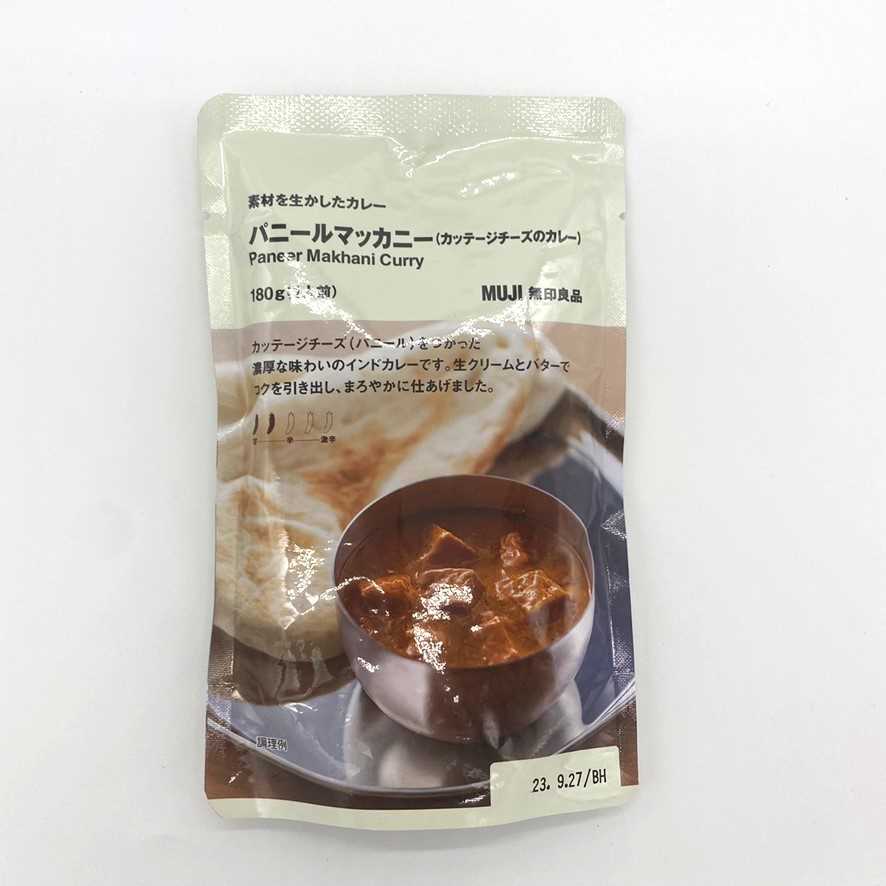
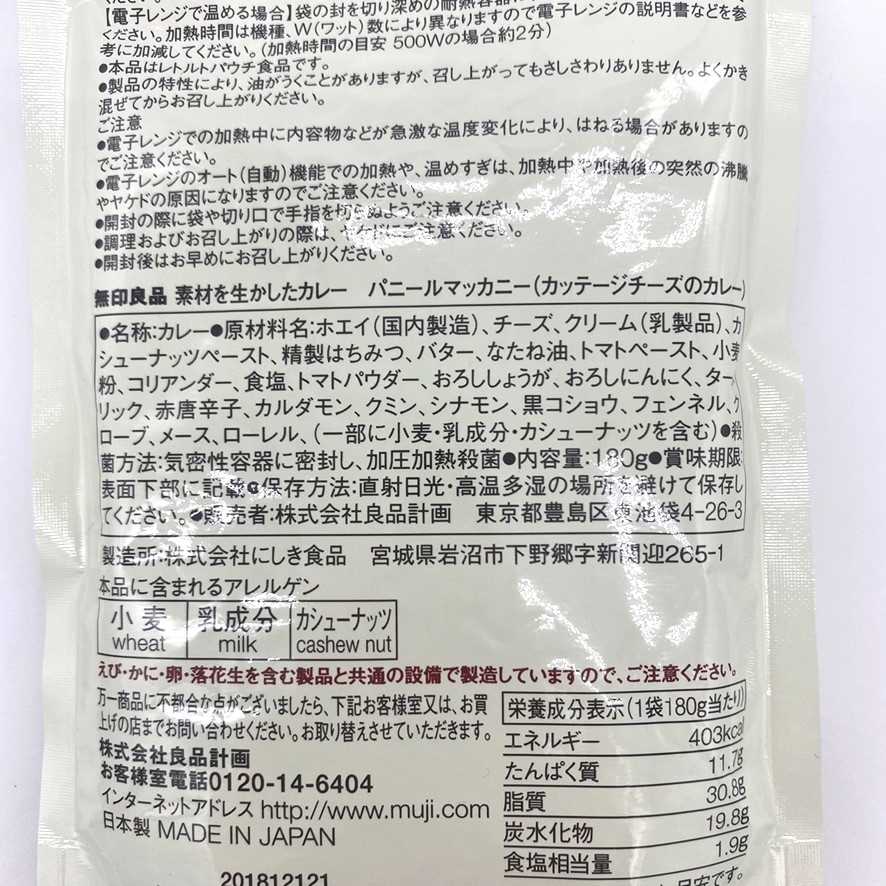
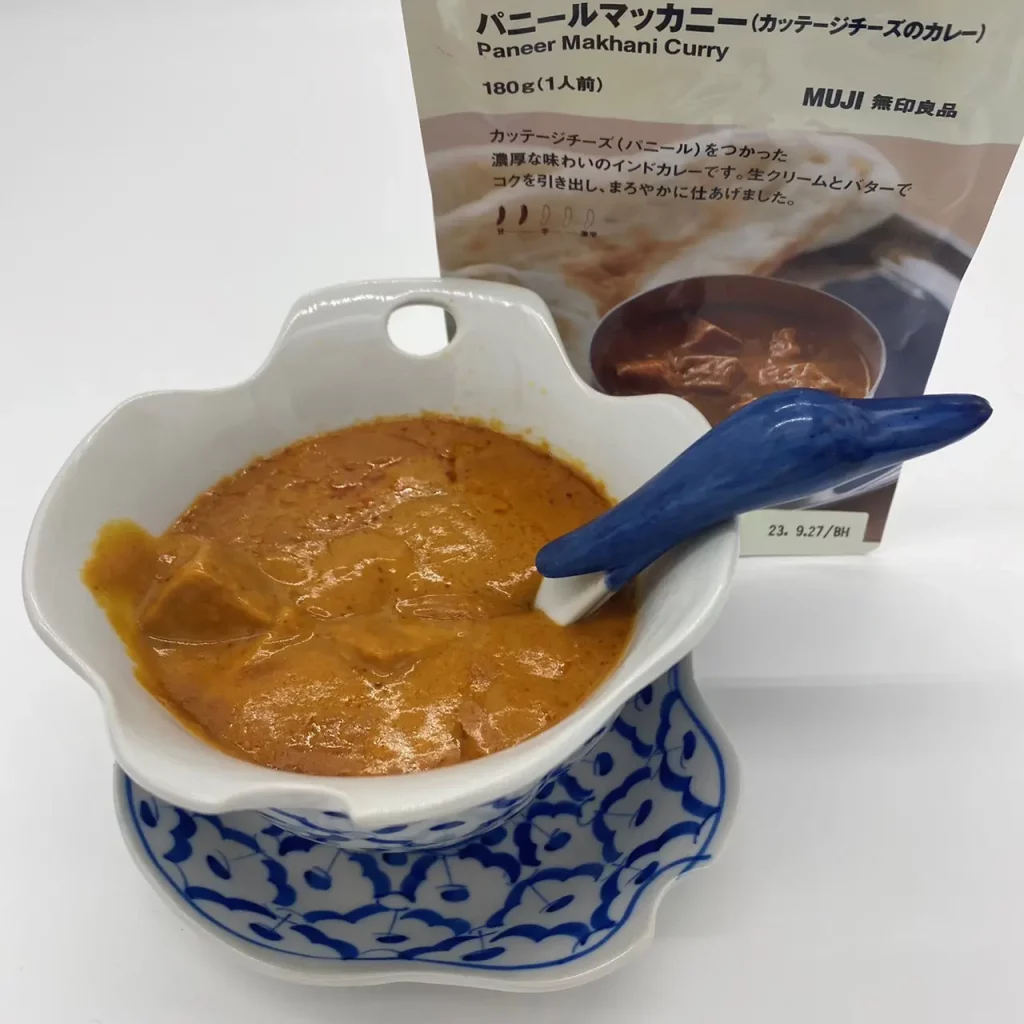
Aloo Matar (アルマタール)
The dish is usually served as Vegetarian food, whose main ingredients are potatoes and peas. Although it contains butter in this curry, the package says that they did not use any meat or egg products, so that it can be consumed by Lacto-Vegetarians, too.
The great thing for a health-conscious people is that this curry is comparatively low in calories. The curry that uses a lot of butter and cheese could be rich in taste, however, this vegetarian curry is more like a thick soup. The taste of this curry was so rich in spices, and it was satisfying. You can add some more chillis if you like hot and spicy food.
Ingredients
Potato, Onion, Green peas, Bell pepper, Garlic, Potato paste, Mashed potato, Tomato paste, Plant oil, Sauteed onion, Butter, Fiber, Salt, Spices, Sugar, Yeast essence, Lemon juice, dairy product
Price
290 yen
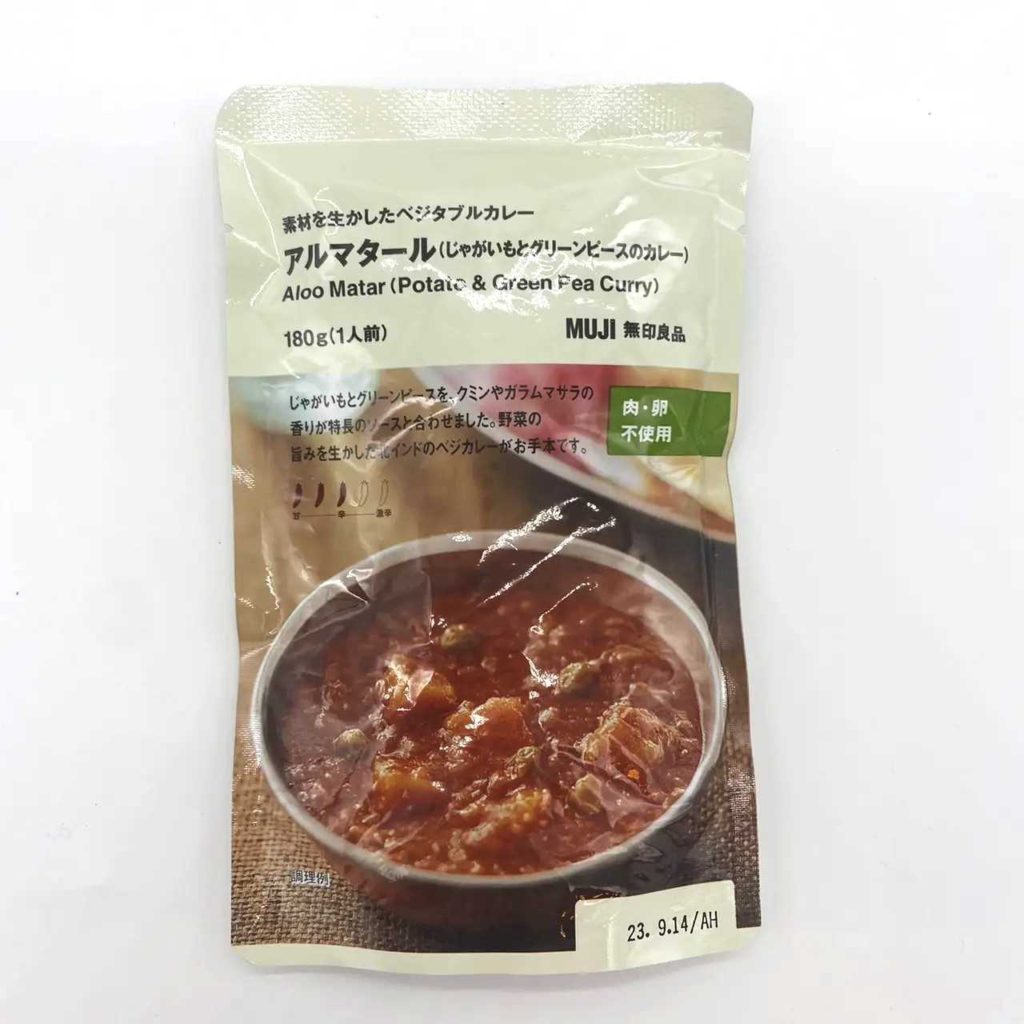
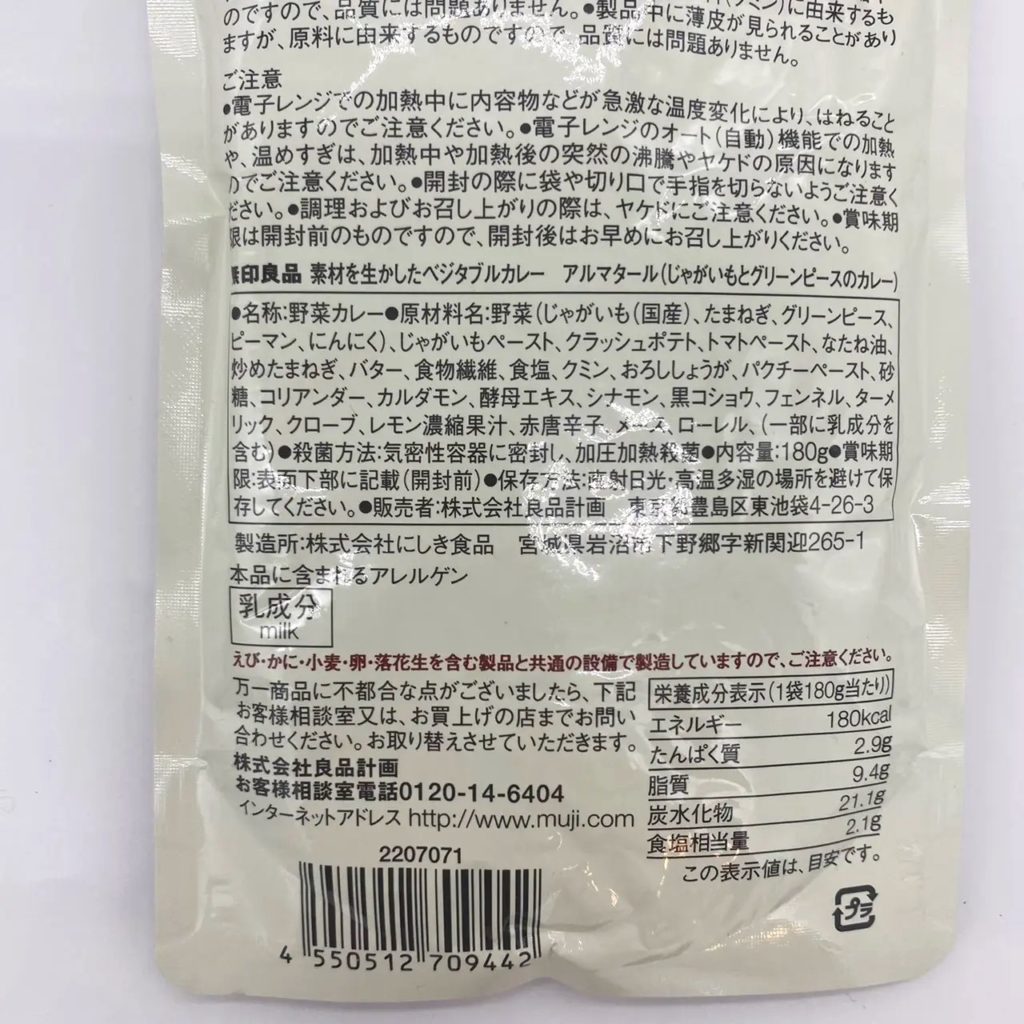

Prawn Moiley (プラウンモイリー)
The curry from South India, using prawns. The curry is in a coconut milk paste along with a fresh sourness of lemon, with a spicy mustard seed. Prawn curry is a good choice for those who would like to try non-vegetarian Halal meal in Japan.
The taste of the curry is actually lighter than what was expected, maybe because of the sourness of the lemon. The curry also does not use butter, so it is good for those who want to minimize animal fat. The curry can be enjoyed better if eaten with a cup of rice.
Ingredients
Boiled prawn, Coconut milk powder, Dried tomato, Sauteed onion, Plant oil, Cornstarch, Salt, Spices, Sugar, Lemon juice, Yeast essence, Dairy products
Price
390 yen
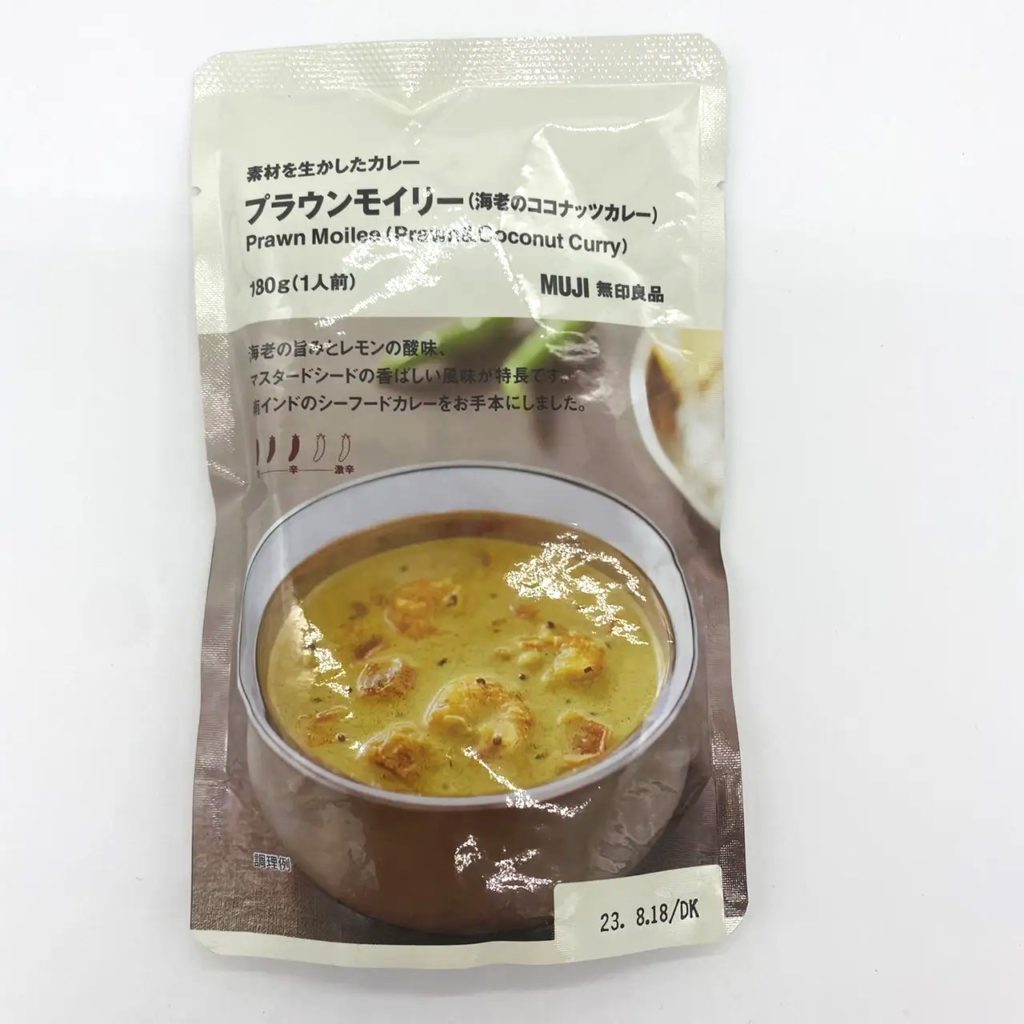
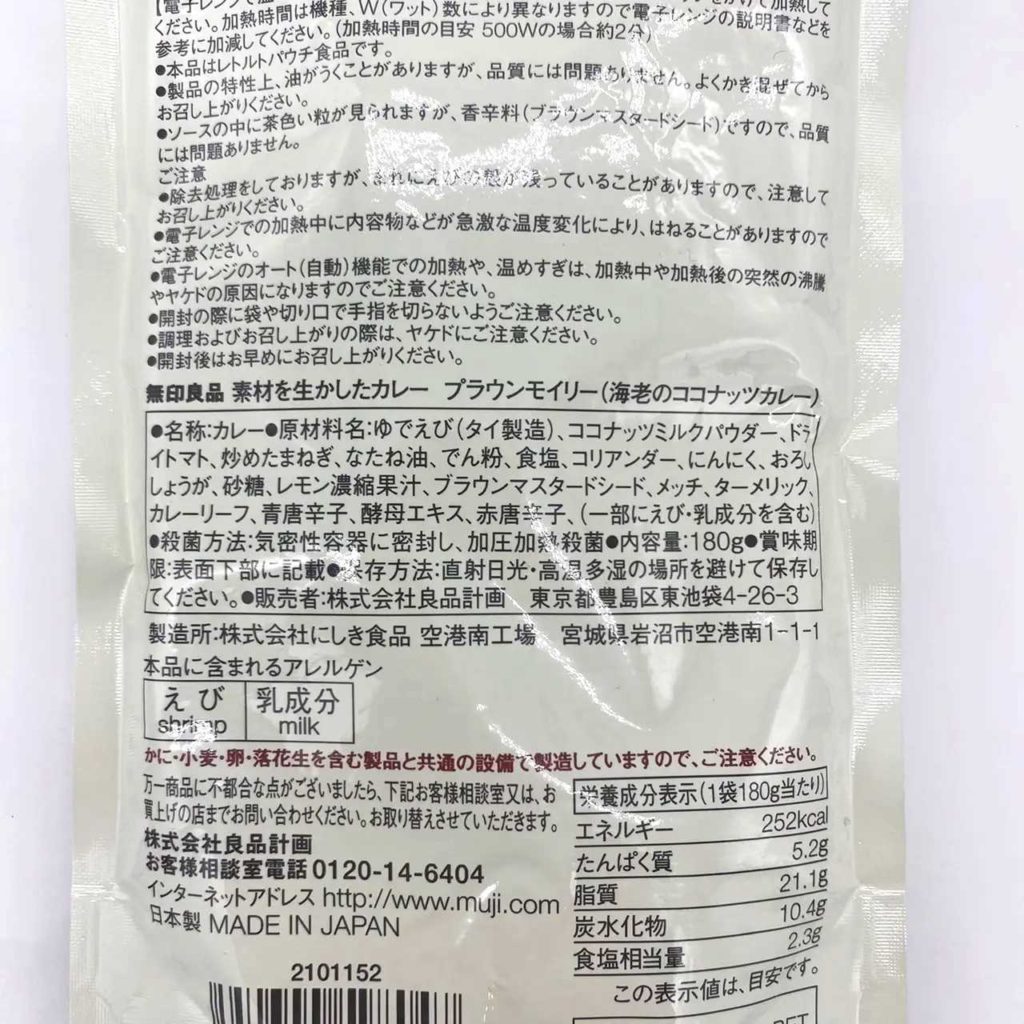
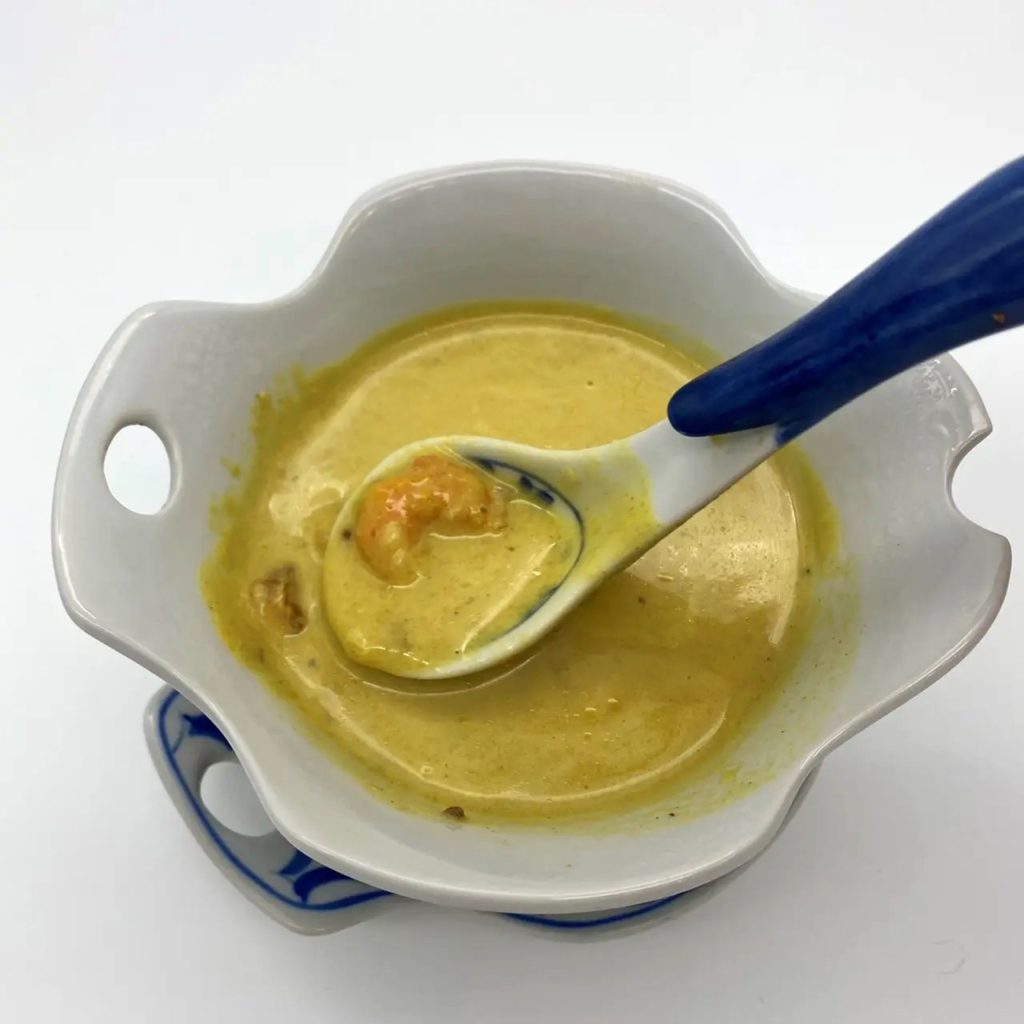
Kuzhambu(コザンブ)
Kuzhambu is an Indian style curry, whose main ingredients are root vegetables and coconut milk. It is usually served as vegan, but the one sold at MUJI says that it contains bit of dairy products, so that it is not a strict Vegan. On the front package, however, it says that no egg or meat is used.
The curry was tasty with so many root vegetables inside, but it is not as rich or thick as other curries that use dairy product or meat. Although the product is not a genuine vegan food, it is a food safe for most of Muslims.
Ingredients
Root vegetables, Coconut milk powder, Sauteed onion, Tomato paste, Plant oil, Salt, Grated ginger, Yeast essence, Dairy products
Price
290 yen
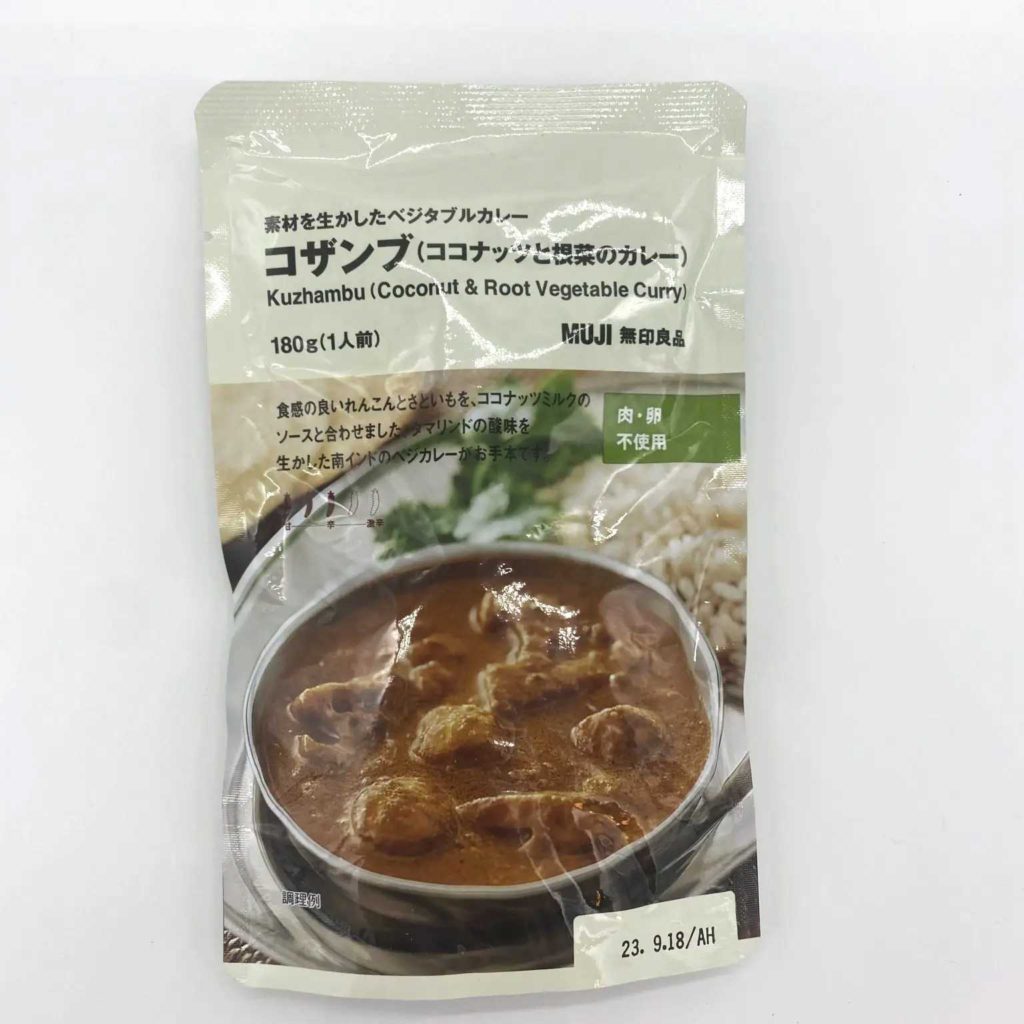
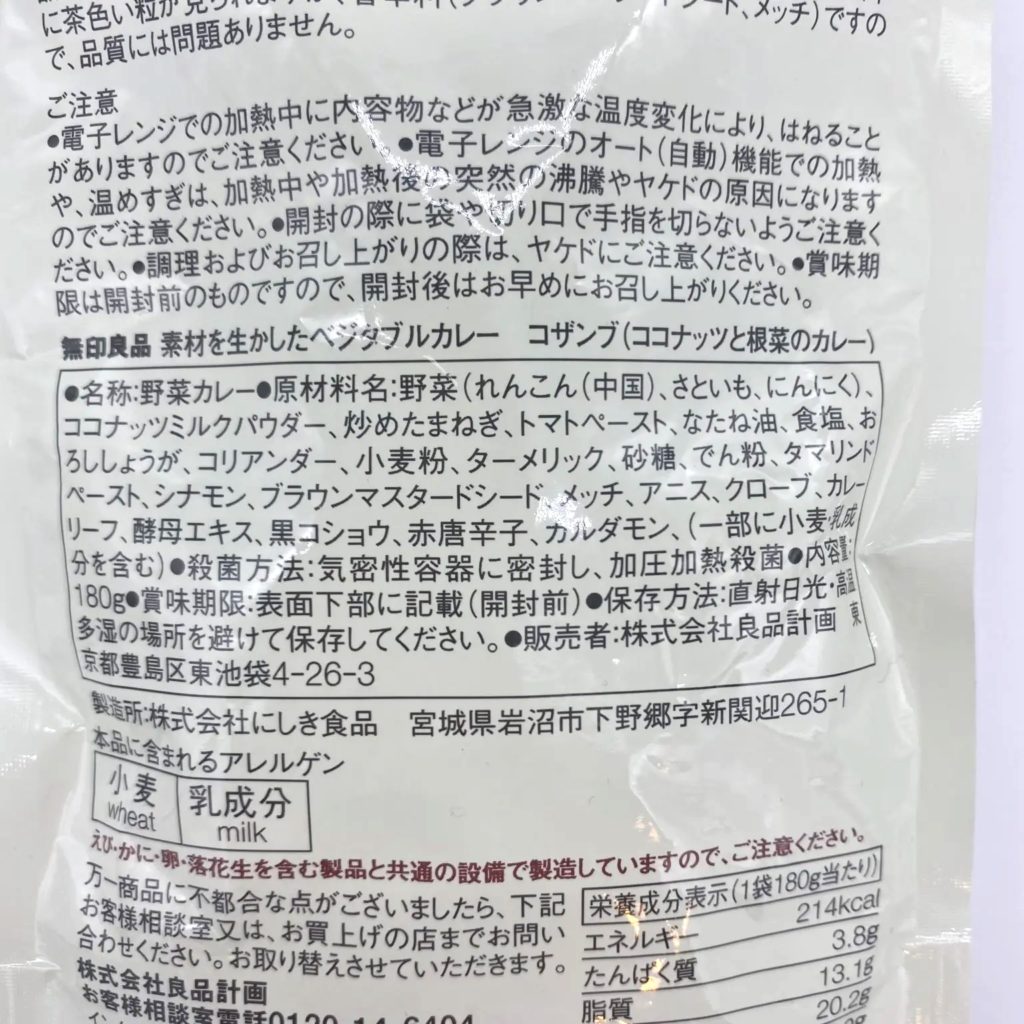
Vegetable Korma(ベジタブルコルマ)
Vegetable Korma is a Lacto-Vegetarian meal, with some dairy products used. With carrots and green peas in a yellow soup, the curry itself looks very appetizing. On the front package, it clearly says that they do not contain any meat or egg inside.
This curry can be good when you do not have so much appetite, because you can enjoy the curry just like a soup. The curry is mild and not so spicy, so that it can be welcomed by people who do not like spicy food or by kids.
Ingredients
Lotus root, Potato, Garlic, Coconut milk powder, Sauteed onion, tomato paste, Plant oil, Salt, Grated garlic, Coriander, Flour, Turmeric, Sugar, Starch, Tamarind paste, Cinnamon, Mustard seed, fenugreek, anise, clove, Curry leaf, Yeast essence, black pepper, Red chilli, Cardamon
Price
290 yen
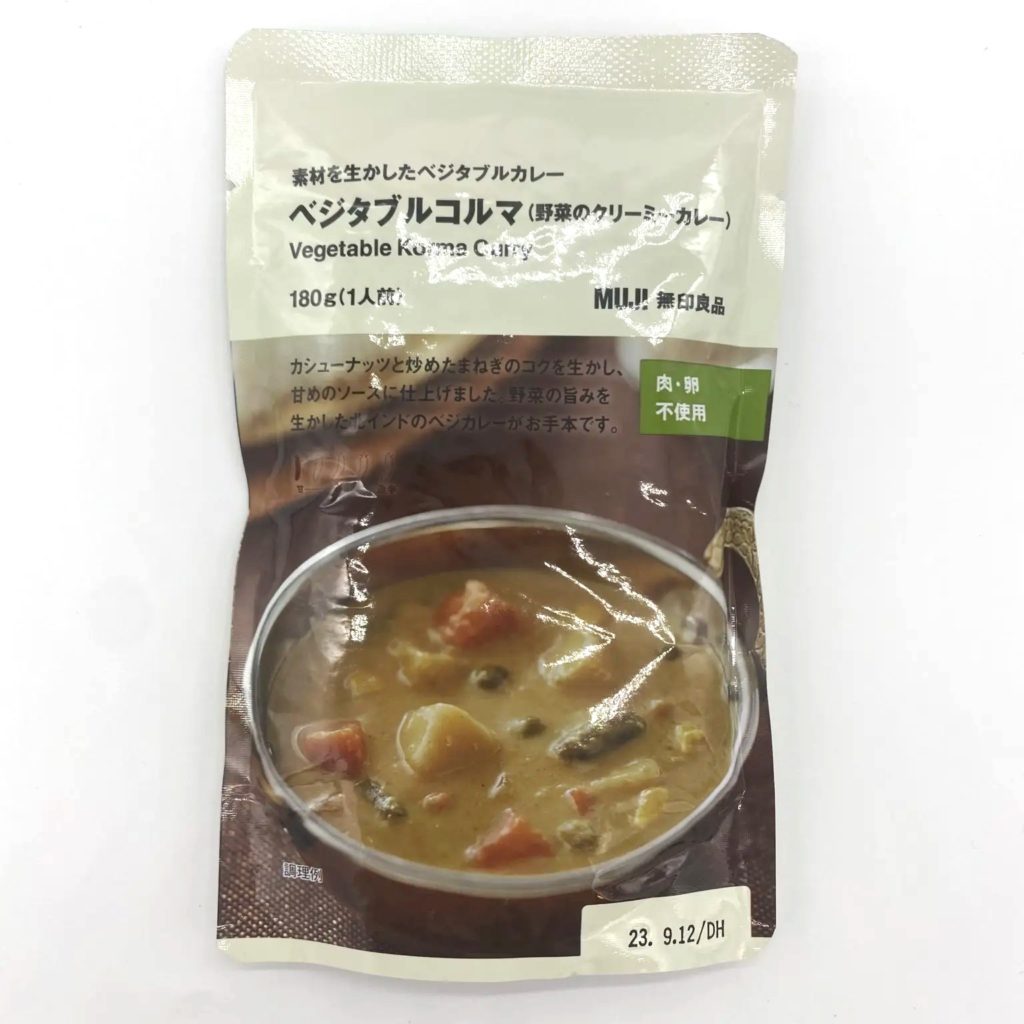
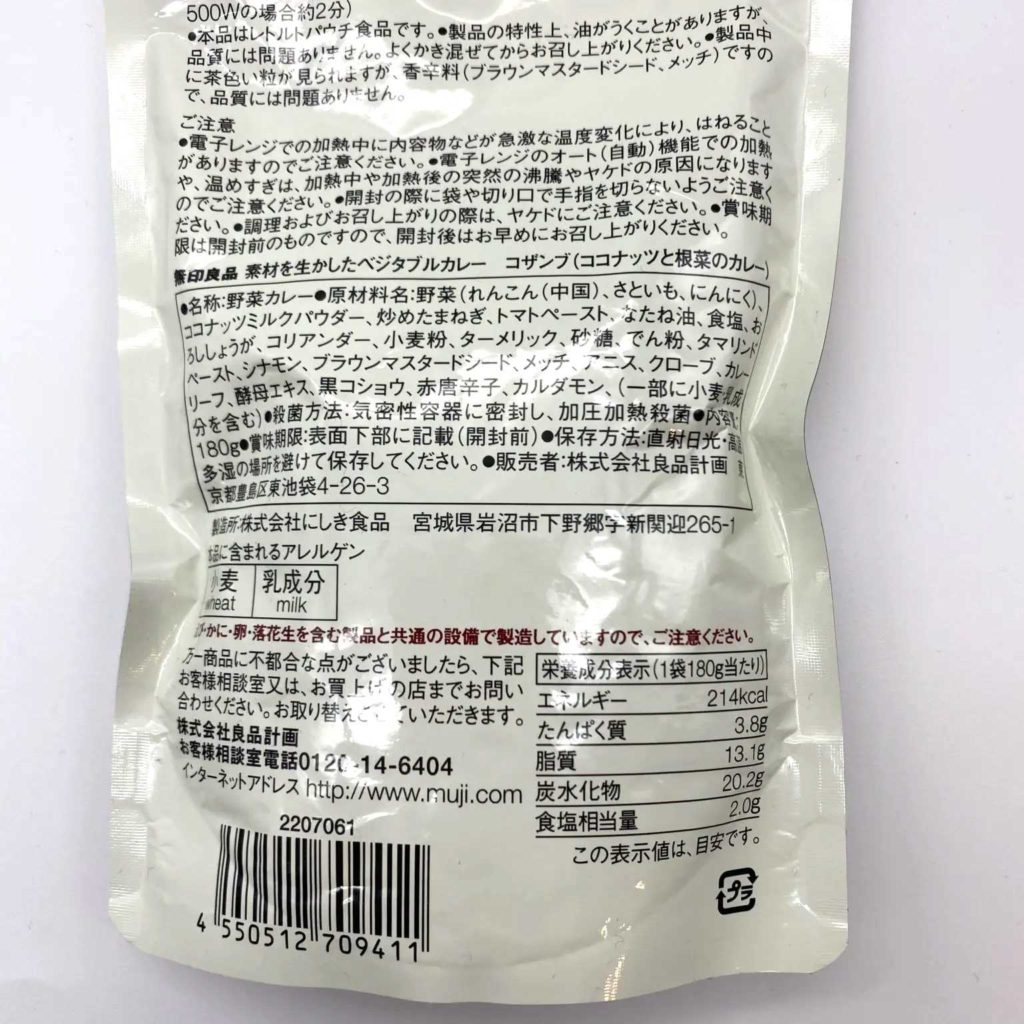
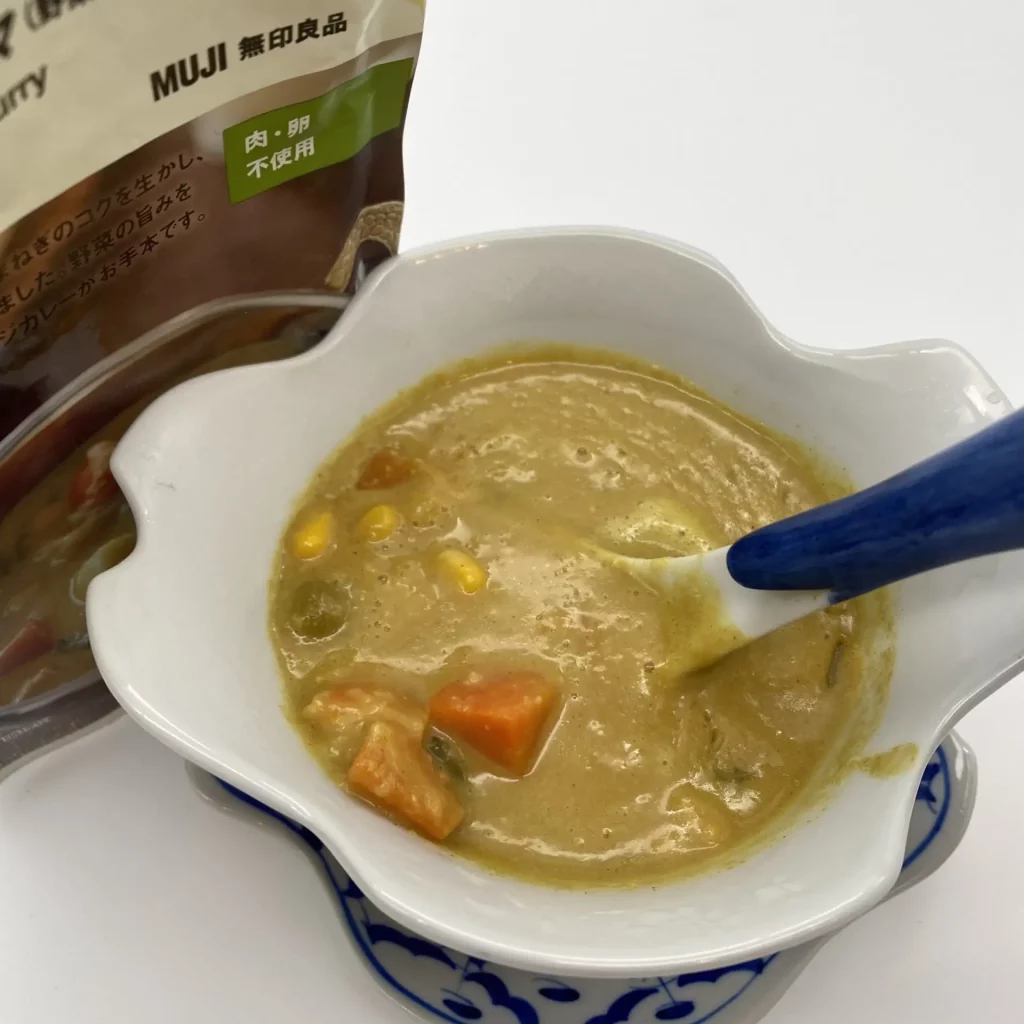
Baingan Till Masara (ベイガンティルマサラ)
Baingan Till Masala is a curry from Tamil, South India.
The curry is a vegetarian meal, with thick flavor and taste of roasted eggplant and black sesame. With sweet and sour tomato paste, the curry is so mouthwatering. The curry is a bit spicy, which is not very usual in Japan. If you are a spicy food lover, then try this curry.
Ingredients
Roasted eggplant, Tomato puree, roasted sesame, Sauteed onion, Plant oil, Tomato paste, Garlick, Green pepper, Grated ginger, salt, seasoning, roasted coconut, Sugar, Starch, Powdered fermented seasoning
Price
290 yen
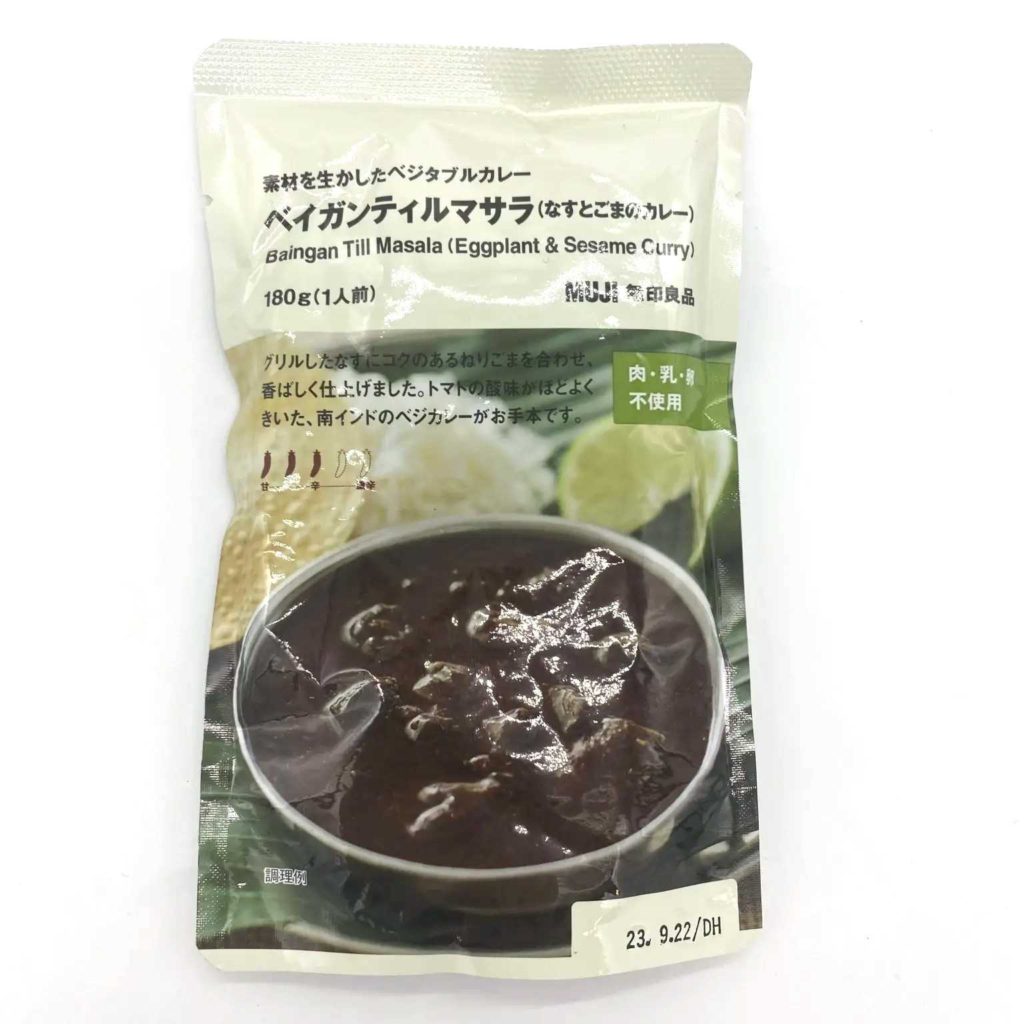
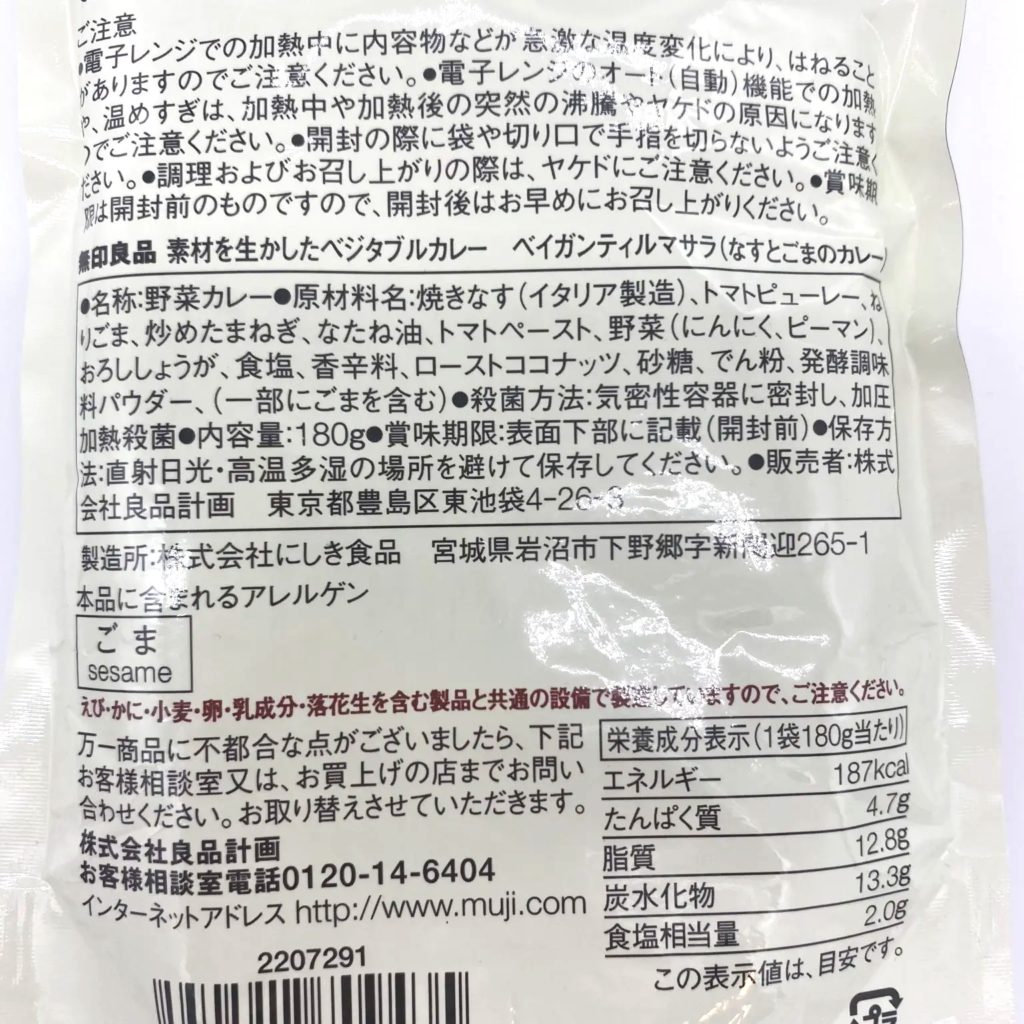
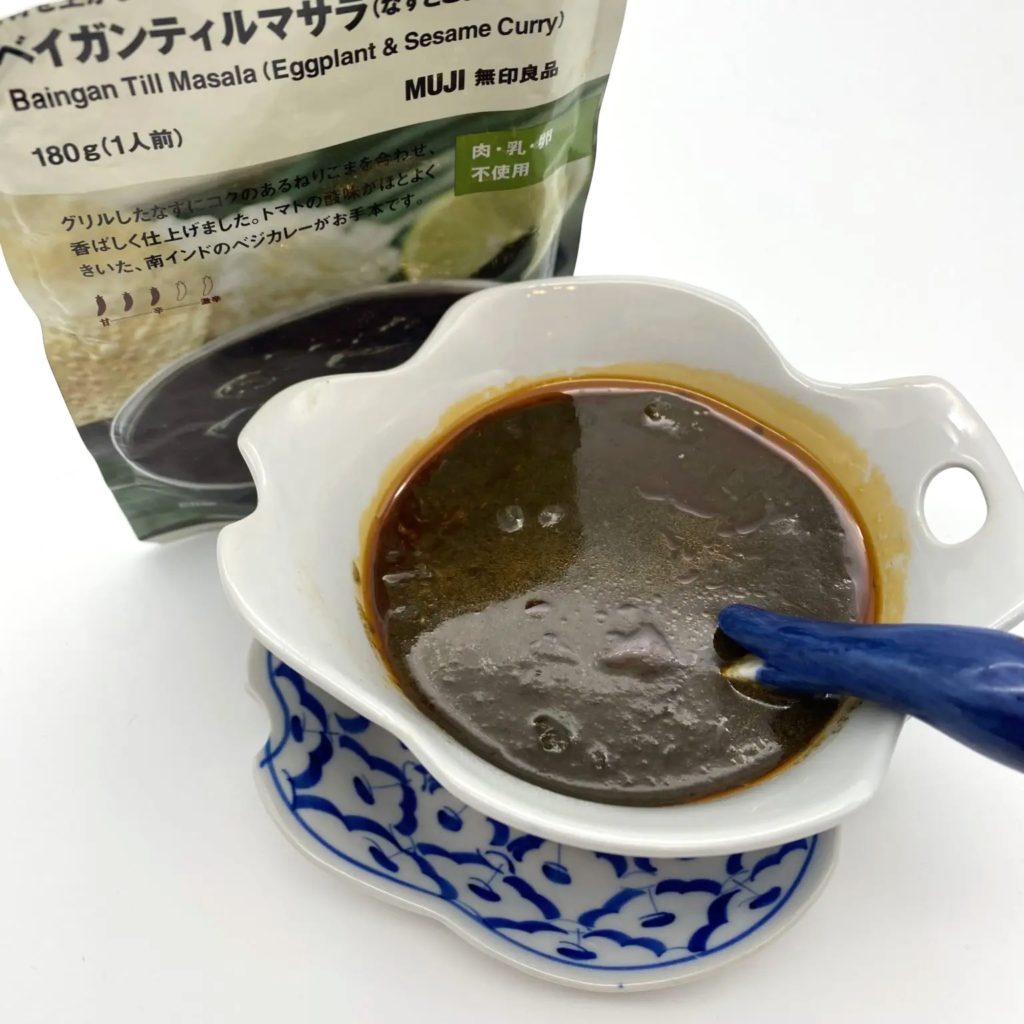
Why are we introducing MUJI to you?
With more than 500 shops throughout Japan, MUJI is very accessible to even tourists. The shops of MUJI are usually available in major cities and malls, from Hokkaido to Okinawa, so that even the tourists can find shops easily while traveling.
Curries we have introduced to you are Indian styles, so you may not be tempted to try in Japan. However, if you really cannot find anything Muslim-friendly in Japan, then you can buy their curry as a last resort.
You may find the shop very interesting, even if your aim is not to find curries. Especially their notebooks and pencils are much cheaper than in the branches in the overseas, so that you can try to find nice souvenirs.
Is it easy to cook?
Yes, they are super easy to be ready! You can either use microwave or in boiled water. This is another reason why we can recommend this product for travelers.
On the package, MUJI says that the curry can be warmed up. Time you need may vary depends on the Watt or microwave.
Our recommendation is to use boiled water instead of microwave. This is because using microwave can dry the surface and sometimes it overcooks the curry. If you have boiled water, then just put in the package in boiled and then leave it for 5 minutes.
Is it easy to figure out what is written on the package?
Yes, it is written very clearly so you do not have to worry about
We found so many vegan or seafood choices in the shop. There is English translation just below the name in Japanese, so that it would not be that difficult for foreigners to see what is inside the curry. What is good is that they are clearly showing the hotness of the curry, using numbers of chilis on the package. Maximum hotness is 5 chillis.
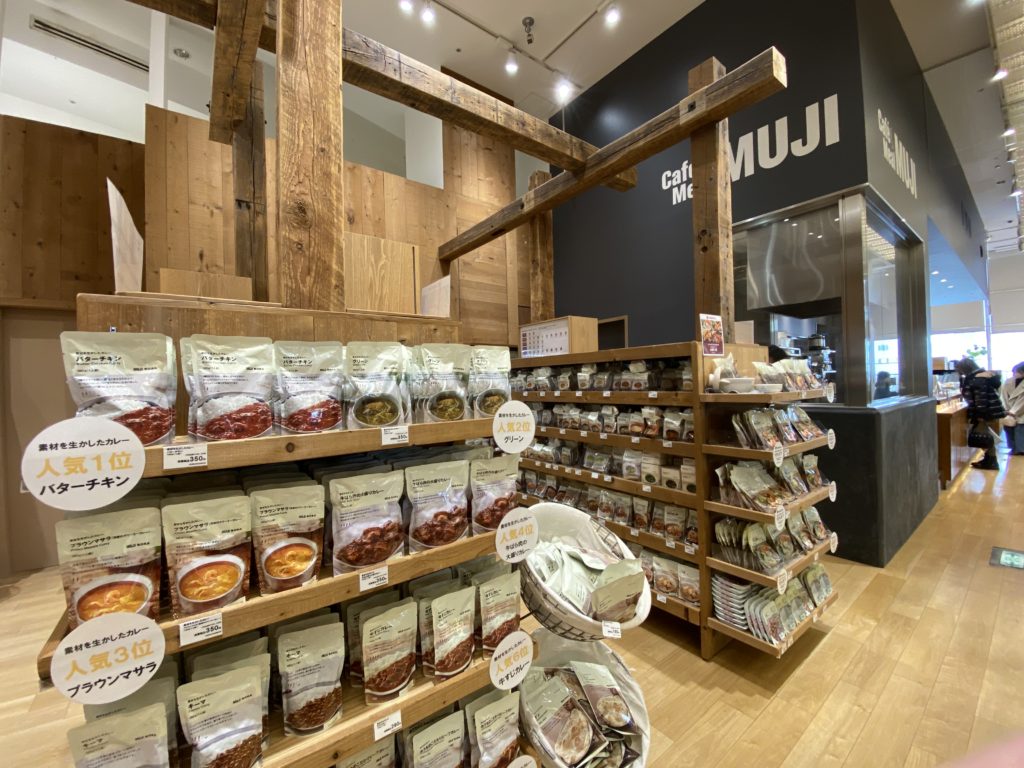
Are they all Halal?
We cannot guarantee that they are 100% Halal, as they are not Halal certified. There is a risk of contamination, because curries with or without meat are cooked in the same factory and sharing machineries.
If the product is Vegan, then the risk of contamination is lower. Still, as we cannot omit all the possibilities, please understand that it is your own decision to find what is Halal or haram.
Wait a minute, weren’t there some Halal certified curries?
Seeing more and more Muslims coming to Japan, MUJI have obtained a Halal certificate on their curries in 2020. There were Beef Rendang, Malaysian Chicken and Chicken Masak Remak.
However, looking at the information in June 2023, it seems like they have stopped selling these curries. If they are back in sale, we will update you.
Information as of June 2023. The products are not made as Halal or Muslim-friendly, so there is a small risk of contamination, which we cannot be responsible of. We are here to translate the label, please use your discretion to judge if the product is Halal or not.

